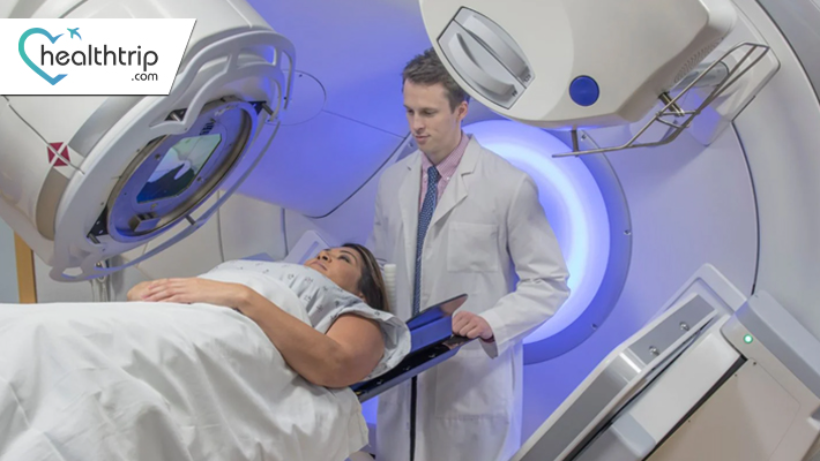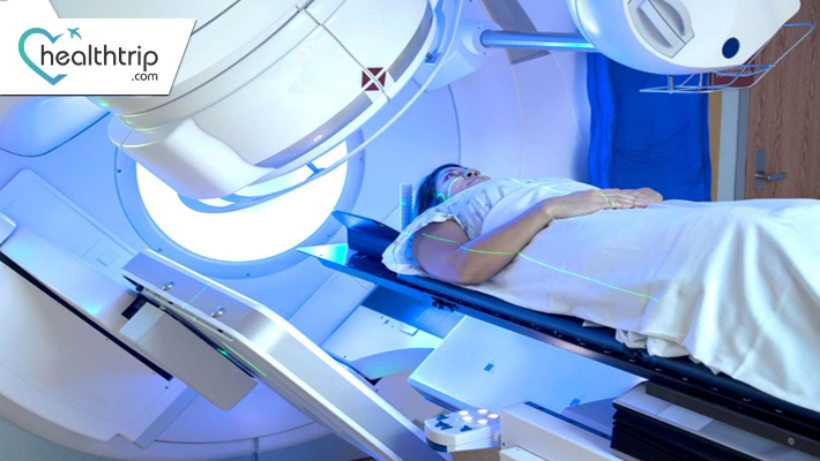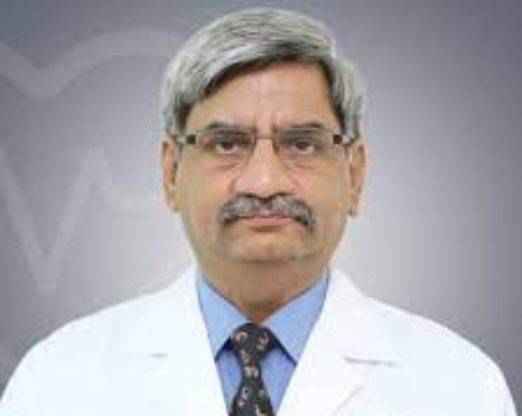- Starting at $5,000
- Starting at $1,000
- Starting at $8,000
- Starting at $11,400
- Starting at $2,350
- Starting at $6,300
- Starting at $4,000
- Starting at $3,800
- Starting at $3,000
- Starting at $6,700
- Starting at $3,500
- Starting at $7,750
- Starting at $6,500
- Starting at $5,500
- Starting at $4,000
- Starting at $11,000
Top Hospitals for Oncology View All 
Best Doctors for Oncology View All 
Director & Head- Neuro & Spine Surgery
CONSULTS AT EXPEREIENCE :19+ years SURGERIES :
10000+
Treatment Price on request
Free Text ConsultTreatment Price on request
19+ years SURGERIES :
10000+ TREATMENT COST
Treatment Price on request
Consultant - Surgical Oncology
CONSULTS AT EXPEREIENCE :20+ years SURGERIES :
10000+
Treatment Starting at $450
Free Text ConsultTreatment Starting at $450
20+ years SURGERIES :
10000+ TREATMENT COST
Starting at $450
Senior Consultant - Medical Oncology | Surgical Oncology
CONSULTS AT EXPEREIENCE :24 years SURGERIES :
10000+
Treatment Price on request
Free Text ConsultTreatment Price on request
24 years SURGERIES :
10000+ TREATMENT COST
Treatment Price on request
Treatment Starting at $700
Free Text ConsultTreatment Starting at $700
10 years SURGERIES :
NA TREATMENT COST
Starting at $700
(principle Director-onco-surgery) At Fortis Memorial Research Institute, Gurgoan
CONSULTS ATFortis Memorial Research Institute, Gurgaon
EXPEREIENCE :15 years SURGERIES :
12000+
Treatment Price on request
Free Text ConsultTreatment Price on request
(principle Director-onco-surgery) At Fortis Memorial Research Institute, Gurgoan
CONSULTS AT15 years SURGERIES :
12000+ TREATMENT COST
Treatment Price on request
Senior Consultant - Obstetrics & Gynecology
CONSULTS AT EXPEREIENCE :31 years SURGERIES :
9000+
Treatment Price on request
Free Text ConsultTreatment Price on request
31 years SURGERIES :
9000+ TREATMENT COST
Treatment Price on request
Testimonials
View All 
- Treatment : Prostate Cancer
- Hospitals : Manipal Hospital, New Delhi
- Treatment : Chemotherapy
- Hospitals : Fortis Memorial Research Institute, Gurgaon
- Treatment : Lung Cancer
- Hospitals : Apollo Proton Cancer Centre
- Treatment : Abdominoperineal Resection (APR)
- Hospitals : Fortis Bangalore
- Treatment : Chemotherapy
- Hospitals : Fortis Hospital, Noida
- Treatment : Chemotherapy
- Hospitals : Fortis Hospital, Noida
- Treatment : Surgery
- Hospitals : Apollo Proton Cancer Centre
- Treatment : Treatment Unknown
- Hospitals : Fortis Hospital, Noida
Related Blogs
View All 

What Are Some Nutrient-Dense Meal Ideas for Cancer Patients?
Receiving a cancer diagnosis can be a life-altering event, and alongside the physical and emotional challenges it brings, maintaining proper nutrition becomes crucial. While there's no one-size-fits-all approach to nutrition during cancer treatment, certain dietary guidelines can help support your health and well-being. Here's a detailed look at what to eat after you've been diagnosed with cancer.1. Understanding Nutritional NeedsCancer and its treatments can affect your appetite, digestion, and nutrient absorption. Therefore, it's crucial to focus on nutrient-dense foods that support your body's healing and recovery. You should prioritize foods that are rich in protein, antioxidants, healthy fats, fibre, and fluids.Protein is essential for repairing tissues and supporting immune function. You can find protein in lean meats, poultry, fish, eggs, dairy products, legumes, nuts, and seeds.Antioxidants help protect cells from damage caused by free radicals. You can include a variety of colourful fruits and vegetables such as berries, citrus fruits, leafy greens, carrots, and tomatoes in your diet to get enough antioxidants.Healthy fats provide energy and support cell growth. Incorporate sources like avocados, olive oil, nuts, seeds, and fatty fish such as salmon and mackerel into your diet.Fiber aids in digestion, helps regulate blood sugar levels and supports gut health. To meet your fibre needs, choose whole grains, fruits, vegetables, legumes, and nuts.Staying hydrated is essential, especially during cancer treatment. Aim for plenty of water, herbal teas, broths, and soups to maintain hydration.2. Meal IdeasIf you have been diagnosed with cancer, incorporating nutritious meals into your diet can be beneficial. Here are some meal ideas to help you get started:1. Breakfast:- Greek yoghurt with topped berries and almonds.- Oatmeal topped with sliced bananas and a drizzle of honey.- Whole grain toast with avocado and poached eggs.2. Lunch:- Grilled chicken salad with mixed greens, cherry tomatoes, cucumbers, and balsamic vinaigrette.- Quinoa salad with roasted vegetables and chickpeas.- Whole grain wrap with hummus, turkey, spinach, and shredded carrots.3. Dinner:- Baked salmon with quinoa and steamed broccoli.- Stir-fried tofu with mixed vegetables and brown rice.- Lentil soup with whole grain bread and a side salad.4. Snacks:- Fresh fruit with nut butter.- Veggie sticks with hummus.- Greek yoghurt with granola.2. Dietary Considerations During TreatmentIf you're undergoing cancer treatment, it's possible to experience side effects like nausea, vomiting, diarrhoea, or mouth sores which can hinder your ability to eat. To cope with these side effects, try out the following tips:- Eat small, frequent meals and snacks throughout the day.- Choose bland, easy-to-digest foods like plain rice, toast, crackers, and applesauce if you're experiencing nausea or vomiting.- Stay hydrated by sipping on fluids regularly. Opt for clear liquids such as broth, herbal tea, or electrolyte drinks if you have trouble keeping food down.- Avoid spicy, acidic, or overly fatty foods that may irritate your stomach or mouth sores.3. Consulting with a Registered DietitianWhen undergoing cancer treatment, it is important to keep in mind that everyone's nutritional requirements are different. Consequently, it is recommended that you consult with a registered dietitian who specializes in oncology nutrition. They can offer customized advice based on your unique diagnosis, treatment plan, and dietary preferences. your unique diagnosis, treatment plan, and dietary preferences.4. Managing Side Effects and Nutritional ChallengesMaintaining a balanced diet is crucial during cancer treatment. However, it's also important to address specific nutritional challenges and side effects that are commonly experienced. These include:1. Nausea and Vomiting: These symptoms can significantly impact your ability to eat and maintain proper nutrition. If you're experiencing nausea and vomiting, try eating small, frequent meals and bland foods such as crackers, rice, or broth. You can also try ginger tea or ginger candies to alleviate nausea.2. Mouth Sores: Mouth sores can make eating painful. To make eating more comfortable, choose soft, mild foods like yogurt, scrambled eggs, or pureed soups. Avoid acidic or spicy foods that can further irritate the sores.3. Changes in Taste and Smell: Cancer treatments can alter your sense of taste and smell, making some foods less appealing. To help combat this, experiment with different flavors and textures to find what works for you. Adding herbs, spices, or marinades to enhance the taste of foods can also be helpful.4. Appetite Changes: Cancer treatments may cause fluctuations in appetite, ranging from decreased to increased hunger. It's important to listen to your body's cues and eat when you're hungry, even if it means having smaller, more frequent meals throughout the day.5. Weight Changes: Some individuals may experience weight loss or gain during cancer treatment. If you're losing weight unintentionally, focus on calorie-dense foods and beverages like smoothies, shakes, and nut butter. If you're gaining weight, prioritize portion control and mindful eating habits.Final ThoughtsWhile maintaining a healthy diet after a cancer diagnosis is important, it's also crucial to prioritize self-care and listen to your body's cues. Be gentle with yourself and focus on nourishing foods that support your overall well-being. By making informed dietary choices and seeking support from healthcare professionals, you can optimize your nutrition and enhance your quality of life during and after cancer treatment.It's important to note that this guide is not a replacement for medical advice, and you should always consult with your healthcare team for personalized nutrition recommendations that are tailored to your unique needs and circumstances.

Breast Cancer Symptoms: What Should You Know?
Breast cancer is a pervasive and potentially life-threatening condition that affects millions of women worldwide. Early detection plays a crucial role in successful treatment, making it essential to be aware of the symptoms associated with breast cancer. In this blog, we'll delve into the key indicators that every woman should be acquainted with.1. Unexplained Changes in Breast Size or ShapeOne of the earliest signs of breast cancer can be alterations in the size or shape of the breast. If you notice sudden changes, such as asymmetry or an increase in size, it's crucial to consult with a healthcare professional promptly.2. New Lumps or MassesThe presence of a new lump or mass in the breast is a common symptom of breast cancer. These lumps are often painless and may feel hard or irregular. It's essential to perform regular breast self-exams to detect any unusual changes.3. Nipple ChangesChanges in the nipples can also be indicative of breast cancer. Look out for nipple inversion, sudden retraction, or any other alterations in appearance. Discharge, especially if it's bloody, warrants immediate attention.4. Skin ChangesSkin changes on the breast can include redness, dimpling, or the development of an orange-peel texture. These alterations may be subtle, so paying attention to the skin's appearance is crucial for early detection.5. Persistent Breast PainWhile breast pain is a common concern, persistent, unexplained pain should be thoroughly evaluated. Breast cancer can cause discomfort or tenderness, so any unusual or enduring pain should be discussed with a healthcare professional.6. Changes in Breast TextureThe texture of the breast skin can change with the progression of breast cancer. If you notice an area that feels different from the surrounding tissue, such as being unusually hard or thickened, it's imperative to seek medical advice promptly.7. Swelling or Lymph Node EnlargementSwelling or enlargement of the lymph nodes under the arm or around the collarbone may indicate the spread of breast cancer. Regularly check for any changes in these areas during self-exams.8. Unexplained Weight LossWhile weight loss can be attributed to various factors, unexplained weight loss combined with other breast cancer symptoms should not be ignored. It could signify the advanced stages of the disease.Understanding Risk FactorsIn addition to recognizing symptoms, understanding the risk factors associated with breast cancer is vital. While the disease can affect anyone, certain factors can increase the likelihood of its development. These include:Age: The risk of breast cancer increases with age, with a higher incidence in postmenopausal women.Gender: Although rare, men can also develop breast cancer.Family History: Having a close relative, especially a first-degree relative like a mother or sister, with a history of breast cancer can elevate your risk.Genetic Mutations: Inherited gene mutations, such as BRCA1 and BRCA2, significantly increase the risk of breast cancer.Hormone Replacement Therapy (HRT): Long-term use of certain hormone therapies may contribute to an increased risk.Personal History of Breast Cancer or Certain Non-Cancerous Diseases: If you've had breast cancer before or certain non-cancerous diseases, your risk may be higher.Radiation Exposure: Previous chest radiation treatment, especially during adolescence, can elevate the risk.When should you start breast cancer screenings?The timing and frequency of breast cancer screenings can vary based on individual risk factors, age, and health history. It's important to note that screening recommendations may differ between organizations, and healthcare providers often tailor screening plans based on individual circumstances. Here are some general guidelines1. Age-Based Recommendations:a. In Your 20s and 30s:Clinical Breast Exams (CBE): Every 3 years.Breast Self-Exams: Awareness of your breasts and any changes.b. In Your 40s:Mammograms: Start discussing with your healthcare provider. Some recommend annual mammograms starting at 40, while others may suggest biennial screenings.c. 50 and Older:Mammograms: Continue annually or as recommended by your healthcare provider.2. Risk-Based Recommendations:a. High Risk:Individuals with a strong family history or genetic mutations (e.g., BRCA1, BRCA2) may need earlier and more frequent screenings. Genetic counselling can help assess your risk.b. Prior History:If you have a personal history of breast cancer or certain non-cancerous diseases, your screening plan may differ. Consult with your healthcare provider for personalized recommendations.3. Individualized Approach:Health Assessment: Discuss your overall health, medical history, and concerns with your healthcare provider.Shared Decision-Making: Collaborate with your healthcare team to make informed decisions based on your risk factors, values, and preferences.4. Ongoing Awareness:Breast Self-Exams: Regardless of age, being familiar with your breasts through regular self-exams is encouraged. If you notice any changes, report them to your healthcare provider.5. Regular Clinical Exams:Clinical Breast Exams: Regular clinical exams by a healthcare professional are crucial. These exams can help detect any abnormalities or changes in your breasts.6. Lifestyle Factors:Maintain a Healthy Lifestyle: A healthy diet, regular exercise, limited alcohol consumption, and avoiding tobacco can contribute to overall well-being, potentially reducing breast cancer risk.7. Individualized Discussions:Regular Conversations with Your Healthcare Provider: Keep an open dialogue with your healthcare provider about your breast health. Discuss any concerns or changes in your breasts promptly.ConclusionBeing vigilant about your breast health is crucial for early detection and successful treatment of breast cancer. Regular self-exams, awareness of your body, and prompt consultation with healthcare professionals if any of these symptoms arise are key to improving outcomes. Early detection saves lives, so empower yourself with knowledge and take charge of your breast health.

Mouth Cancer Stages and Treatment Options
In the realm of mouth cancer, understanding its different stages is crucial for early detection and effective treatment. This comprehensive guide will walk you through the stages of mouth cancer, from the initial precancerous Stage 0 to the advanced Stage IV, providing insights into treatment options and emphasizing the significance of early detection and lifestyle modifications for better outcomes.Stage 0 (Carcinoma in Situ): In the realm of mouth cancer, the earliest stage is referred to as Stage 0, also known as Carcinoma in Situ. At this point, cancer cells are confined to the surface layer of the mouth's mucosa lining. There's no invasion into deeper tissues. Detecting Carcinoma in Situ is vital, as it's considered a precancerous condition. Without timely intervention, it may progress into invasive cancer. At this stage, symptoms may not be noticeable, but there may be subtle changes like persistent mouth sores or red/white patches.The initial stage of mouth cancer, Carcinoma in Situ (Stage 0), often involves minimally invasive treatments. Options may include surgical procedures, such as excision or laser therapy, aimed at removing the affected surface tissue. These treatments are designed to eradicate cancerous cells in the mucosa's top layer. Patients should also focus on regular follow-up appointments and lifestyle changes, like smoking cessation and reduced alcohol consumption, to prevent the progression to invasive cancer.Stage I: Within the context of mouth cancer, Stage I signifies the presence of small, localized tumors. Typically, these tumors don't exceed 2 centimeters in size. Furthermore, they haven't extended beyond the confines of the mouth; lymph nodes and other body parts remain unaffected. In terms of treatment and prognosis, Stage I mouth cancer offers the most favorable prospects. Symptoms may include persistent mouth sores, pain, difficulty swallowing, and changes in speech.Treatment for Stage I mouth cancer primarily centers around surgical resection. This procedure entails the removal of the tumor, along with a margin of healthy tissue to ensure complete elimination of cancer cells. Depending on the tumor's size and location, this may involve partial or complete excision. In some cases, radiation therapy might complement surgery to ensure thorough treatment.Stage II: Advancing from Stage I, we encounter Stage II, characterized by slightly larger tumors, typically ranging from 2 to 4 centimeters. While these tumors are larger, they have not yet spread to distant body parts. In some cases, cancer may affect nearby lymph nodes, but the primary tumor remains localized within the mouth. Symptoms may include persistent mouth sores, pain, difficulty swallowing, and potential enlargement of nearby lymph nodes. Stage II mouth cancer follows a treatment approach akin to Stage I. The core of treatment remains surgical resection to eliminate the tumor and potentially affected tissue. In instances where cancer has begun to impact nearby lymph nodes, radiation therapy may be recommended. Combining surgery and radiation therapy can provide a robust strategy for effectively combating the disease.Stage III: At Stage III of mouth cancer, the disease has progressed further. Tumors are larger and may have invaded nearby tissues and structures within the mouth. There's also an increased likelihood of cancer spreading to nearby lymph nodes. However, it has not yet spread to distant organs. Symptoms may include persistent mouth sores, pain, difficulty swallowing, and an increased likelihood of cancer spreading to nearby lymph nodes. As mouth cancer progresses to Stage III, the treatment landscape becomes more intricate. Surgical resection continues to be a primary option but may require more extensive procedures, including lymph node removal or reconstruction of affected areas for functional and cosmetic restoration. Radiation therapy and chemotherapy are integral components of a comprehensive treatment plan at this stage, necessitating a multidisciplinary approach to ensure the best possible outcome.Stage IV: Stage IV represents the most advanced form of mouth cancer, and it's divided into two sub-stages: IV-A and IV-B. In IV-A, cancer has either extensively spread to nearby lymph nodes, which may have enlarged or clustered together. Alternatively, cancer may have invaded deeper tissues and structures within the mouth. In IV-B, cancer has reached its zenith, spreading to distant organs or lymph nodes far from the primary tumor site. Symptoms vary but may include severe pain, difficulty eating, speaking, or breathing, and significant weight loss.Stage IV mouth cancer, encompassing IV-A and IV-B, demands aggressive treatment due to its advanced nature:In IV-A, comprehensive surgical interventions may be required to excise affected tissue and lymph nodes. Radiation therapy and chemotherapy are often integrated into the treatment regimen.In IV-B, where cancer has metastasized to distant organs, the focus shifts to palliative care. This approach prioritizes enhancing the patient's quality of life, managing symptoms, and slowing down the cancer's progression.In the fight against mouth cancer, knowledge is your best ally. By recognizing the various stages and their treatments, and by prioritizing regular check-ups and healthy living, you can significantly improve your chances of early detection and successful recovery. Act now, because in the world of mouth cancer, early action can be a lifesaver.

Multiple Myeloma treatment in India
Multiple Myeloma, a complex and challenging blood cancer, has seen significant advancements in treatment, especially in countries like India. This blog aims to explore the current landscape of Multiple Myeloma treatment in India, offering insights into diagnosis, treatment options, and patient care.Symptoms of Multiple Myeloma:Multiple myeloma is often referred to as a "silent disease" because it can develop slowly and its symptoms can be subtle, leading to delayed diagnosis. Common signs and symptoms of multiple myeloma include:Bone Pain: One of the hallmark symptoms is bone pain, which is often described as persistent and deep. It commonly occurs in the back, hips, ribs, and skull due to the accumulation of abnormal plasma cells in the bone marrow.Fatigue: Patients may experience unexplained fatigue, weakness, and overall reduced energy levels. Anemia, a common complication of multiple myeloma, can contribute to fatigue.Frequent Infections: Multiple myeloma can weaken the immune system, making patients more susceptible to infections. Recurrent or severe infections, such as pneumonia or urinary tract infections, may occur.Kidney Problems: The abnormal proteins produced by myeloma cells can affect the kidneys, leading to symptoms like increased thirst, frequent urination, and kidney dysfunction.Weight Loss: Unintentional weight loss can occur in some cases, often due to a combination of factors, including reduced appetite and the disease's impact on metabolism.Nerve Symptoms: Myeloma can affect the nervous system, leading to symptoms like numbness, tingling, or weakness in the extremities.Diagnosis of Multiple Myeloma in India:The diagnosis of multiple myeloma typically involves several steps and a combination of tests:1. Clinical Evaluation: A healthcare provider will conduct a thorough medical history and physical examination, paying attention to symptoms such as bone pain, fatigue, and signs of kidney dysfunction.2. Blood Tests: Blood tests are essential in the diagnostic process. Common blood tests include:Complete Blood Count (CBC): This test measures the levels of red blood cells, white blood cells, and platelets. Anemia (low red blood cell count) and other blood abnormalities may be detected.Serum Protein Electrophoresis: This test helps identify abnormal proteins in the blood, such as monoclonal proteins or M-proteins, which are often elevated in multiple myeloma.3. Urine Tests: A 24-hour urine collection may be performed to detect the presence of Bence Jones proteins, which are abnormal proteins produced by myeloma cells and excreted in the urine.Bone Marrow Biopsy: A bone marrow biopsy is a crucial step in the diagnosis. A small sample of bone marrow and a piece of bone are taken, usually from the hipbone, and examined under a microscope. This helps confirm the presence of abnormal plasma cells and assess the extent of bone marrow involvement.Imaging Studies: Advanced imaging techniques like Magnetic Resonance Imaging (MRI) and Positron Emission Tomography (PET) scans are increasingly used in India for staging and evaluating the extent of bone and organ involvement.Genetic Testing: Genetic and molecular tests may be conducted to determine the genetic profile of the myeloma cells, which can guide treatment decisions and prognosis.Once a diagnosis is confirmed, further tests, such as cytogenetic studies and skeletal surveys, may be performed to determine the stage and severity of the disease. Treatment plans are then developed based on the specific characteristics of the myeloma and the patient's overall health.Treatment option in India 1. Chemotherapy is a treatment approach that involves the use of potent drugs designed to either kill cancer cells or slow down their growth. In the context of multiple myeloma, chemotherapy is often employed as an initial treatment, particularly for patients with advanced disease. The primary goal of chemotherapy is to reduce the number of myeloma cells within the body, alleviate associated symptoms, and improve the patient's overall health. Chemotherapy drugs are typically administered through intravenous (IV) injections or taken orally. The specific drugs and treatment regimen are determined based on the patient's individual condition and their response to the therapy. While chemotherapy can be effective in targeting cancer cells, it can also lead to side effects such as nausea, fatigue, and a decrease in blood cell counts, which require close monitoring and management by healthcare professionals.2. Targeted Therapy is another important treatment approach for multiple myeloma. These therapies involve the use of medications that are designed to target specific molecules or pathways that play a role in the growth and proliferation of cancer cells. Targeted therapies, such as proteasome inhibitors and immunomodulatory drugs, are often used either in combination with other treatments or as maintenance therapy to help control myeloma cells by interfering with certain proteins critical to their survival. These drugs are typically administered orally, making them more convenient for patients. However, it's important to note that they can also have side effects, which can include neuropathy (nerve damage) and changes in blood cell counts. Close monitoring and management of these side effects are essential during treatment.3. Stem Cell Transplant is a more intensive treatment option for multiple myeloma. This procedure involves a two-step process. First, high-dose chemotherapy is administered to the patient to eradicate myeloma cells in the bone marrow. Following this, either the patient's own (autologous) or a donor's (allogeneic) stem cells are infused back into the patient's body to replenish the bone marrow and restore blood cell production. Autologous stem cell transplant is often considered for younger and healthier patients, as it carries lower risks compared to allogeneic transplants. The main objective of this treatment is to achieve a deeper remission by eradicating myeloma cells and allowing the regeneration of healthy bone marrow. The decision to pursue this option depends on various factors, including the patient's age, overall health, and the stage of the disease.4. Radiation Therapy is a treatment method that employs high-energy beams to target and eliminate cancer cells or reduce the size of tumors. In the context of multiple myeloma, radiation therapy is frequently used to provide relief from pain caused by bone lesions or to treat localized myeloma that may be affecting specific areas. The primary objective of radiation therapy is to alleviate discomfort, strengthen bones, and shrink tumors in order to enhance the patient's quality of life. Unlike some other treatments, radiation therapy is non-invasive and does not require surgical procedures. 5. CAR T-cell Therapy: CAR T-cell therapy is an emerging and innovative form of immunotherapy that shows great promise in the treatment of multiple myeloma. This therapy involves the modification of a patient's own T-cells (a type of immune cell) to recognize and target myeloma cells more effectively. T-cells are extracted from the patient, genetically engineered to express chimeric antigen receptors (CARs) that specifically target myeloma cells, and then infused back into the patient. Once inside the body, these modified T-cells can seek out and destroy myeloma cells. CAR T-cell therapy is currently being studied in clinical trials, and it represents a potential breakthrough for patients who have not responded to other treatments.6. Maintenance Therapy: Maintenance therapy is an ongoing treatment given after the initial therapy with the goal of preventing disease relapse. In multiple myeloma, maintenance therapy is often administered using drugs like lenalidomide. These drugs help to prolong the period of remission, delaying the progression of the disease. Maintenance therapy is a crucial strategy to manage multiple myeloma as a chronic condition and extend the time during which the disease remains under control.7. Personalized Medicine: Personalized medicine involves a tailored approach to treatment based on the specific molecular characteristics of a patient's myeloma cells. Molecular profiling and genetic testing are conducted to identify unique mutations or biomarkers in the cancer cells. This information is then used to select treatments that are more likely to be effective for that particular patient. Personalized medicine is advancing the field of oncology by optimizing treatment choices and potentially improving outcomes for individuals with multiple myeloma.9. Supportive Therapies: Supportive therapies encompass various complementary approaches designed to manage side effects and improve the overall well-being of individuals undergoing treatment for multiple myeloma. These therapies may include acupuncture, massage, meditation, and other techniques that can help alleviate treatment-related symptoms, reduce stress, and enhance the patient's overall sense of well-being. While they do not directly treat the cancer, supportive therapies can play a valuable role in the holistic care of patients with multiple myeloma.It involves a series of carefully planned sessions where patients receive targeted radiation precisely directed at the affected areas. This precision helps minimize damage to healthy surrounding tissues, making it an effective and well-tolerated treatment option.Leading hospitals for stem cell transplantation in India:1.Max Super Speciality Hospital, Saket, Delhi: Location: Press Enclave Road, Mandir Marg, Saket, New Delhi, Delhi 110017, IndiaMax Smart Super Speciality Hospital, Saket, is a 250-bed facility affiliated with Gujarmal Modi Hospital & Research Centre for Medical Sciences. It boasts 12 high-end modular operation theatres, an emergency resuscitation and observation unit, 72 critical care beds, 18 HDU beds, a dedicated endoscopy unit, and an advanced dialysis unit. The hospital is equipped with cutting-edge medical technology, including a 256 Slice CT Angio, 3.0 Tesla digital broadband MRI, Cath Labs with electrophysiology navigation, and a flat panel C-Arm detector.Max Smart Super Speciality Hospital offers a wide range of medical services in various disciplines, including Cardiac Sciences, Orthopaedics, Urology, Neurology, Pediatrics, Obstetrics, and Gynecology. It is recognized as one of the best hospitals in Delhi.The hospital has a team of over 300 leading specialist doctors and a dedicated nursing staff. They utilize state-of-the-art medical tools to provide the highest standard of medical care to patients, from admission to discharge.Max Smart Super Speciality Hospital, Saket, is a regional hub for complex medical procedures, including neurovascular interventions, targeted cancer treatments, heart surgeries, orthopedic surgeries, liver and kidney transplants, and fertility treatments.2.Kokilaben Dhirubhai Ambani Hospital, Mumbai: Rao Saheb, Achutrao Patwardhan Marg, Four Bungalows, Andheri West, Mumbai, Maharashtra 400053The hospital has over 410 doctors from all departments and has performed 211 liver transplants.It is the only hospital in Mumbai with all 4 coveted accreditations.The hospital has 12,298+ complex cancer surgeries and 1,776+ robotic surgeries to its credit.The hospital provides complete treatments and surgeries for all kinds of diseases.The hospital has the first 3-room intra-operative MRI suite (IMRIS) in Asia.The hospital has Asia’s first EDGE Radiosurgery system from Varian Medical Systems.The hospital has India’s 1st Spine Surgery Suite featuring the O-arm.The hospital has a 750-bed multi-speciality facility.The hospital has boasted of many firsts not only in India but also in Asia.The hospital courted controversy in 2014 when it offered incentives to doctors for referring patients. It later apologized to the Maharashtra Medical Council.4. Fortis Memorial Research Institute, Gurgaon: Location: Sector - 44, Opposite HUDA City Centre, Gurgaon, Haryana - 122002, India.Type: Multi-super specialty, quaternary care hospital.Faculty: Enjoys an enviable international faculty.Clinicians: Comprises reputed clinicians, including super-sub-specialists and specialty nurses.Technology: Equipped with cutting-edge medical technology.Capacity: Spacious 11-acre campus with 1000 beds.Quality and Safety: Has undergone a thorough on-site review of the quality and safety of care.International Standards: Committed to continuously meeting rigorous international standards.Specialties: Unmatched in the field of Neurosciences, Oncology, Renal Sciences, Orthopedics, Cardiac Sciences, and Obstetrics And Gynecology.Flagship Hospital: Fortis Memorial Research Institute is a flagship hospital of Fortis Healthcare, one of the top healthcare providers in the country.Best doctors for Multiple Myeloma in India 1. Dr. Gaurav DixitLocation: IndiaPosition: Unit Head - Haemato Oncology (Unit II)Hospital: Artemis HospitalExperience: 11+ yearsSpecialties: BMT, Haematopoietic Stem Cell Transplant, HematologyEducation: MBBS, MD in General Medicine, DM in HematologyProfessional Background: Senior residency, AIIMS Delhi, and various hospitalsCertifications: Professional certification in Multiple Myeloma from Mayo Clinic in 2020Expertise Areas: Leukemia, Myeloma, Lymphoma, Aplastic AnemiaProfessional Memberships: Various medical associationsProcedures and Treatments: Stem cell transplants, Bone Marrow procedures, Lumbar PunctureExperience in Treating: Benign hematological disorders, Myeloproliferative Neoplasia2. Dr. Rahul Bhargava Blood Disorders and Bone Marrow TransplantConsults at: Fortis Memorial Research Institute, Gurgaon, and Fortis Hospital, NoidaAchievements: Pioneered stem cell transplant in multiple sclerosis in India.Experience: Over 15 years of medical expertise.Transplants: Successfully completed 400+ transplants.Vision: Established an integrated center of excellence in Hematology and Stem Cell Transplantation at Fortis Memorial Research Institute.Recognition: Renowned hematologist in Delhi and Gurgaon.Specialties: Benign Hematology, Hemato-oncology, Pediatric Hemato-oncology, Transplants (including haploidentical), Hematopathology, Molecular Hematology.3 .Dr. Vinod RainaIndiaPosition: Head of Department & Director of Medical Oncology and HematologyHospital: Fortis Memorial Research Institute, GurgaonExperience: Over 40 yearsMain Speciality: Medical OncologyOther Specializations: Hematology, Concurrent Bio-Radiotherapy, Paediatric Chemotherapy & Palliative Bio-ChemotherapySpecialty Interests: Breast Cancer, Lung Cancer, GI Malignancies, Genitourinary Cancer, Gynaecological Malignancies, Lymphoma, Bone Marrow, and Stem Cell TransplantFormer Professor and Head of Medical Oncology at AIIMSApproximately 400 bone marrow/stem cell transplants performed personallyPrincipal Investigator of around 50 research projectsCo-Founder of INDOX networkMentor to numerous residents and DM students, many in leading positions in India and abroadExecutive Director at FMRI (Fortis Memorial Research Institute)Chairperson of Oncosciences at Fortis HealthcareIn conclusion, India has several world-class treatment centers and expert doctors specializing in Multiple Myeloma care. The country's healthcare infrastructure is equipped to provide comprehensive treatment options for patients. Health insurance coverage varies, so it's essential for patients to understand the specifics of their policies.

Radiation Therapy in India for NHL treatment
Non-Hodgkin Lymphoma (NHL) is a type of cancer that affects the lymphatic system, a crucial part of the immune system. Fortunately, advancements in medical science have provided several effective treatment options for NHL, with radiation therapy being one of them. In India, where healthcare infrastructure continues to improve, radiation therapy has become an essential tool in the fight against NHL. This blog will explore the role of radiation therapy in treating NHL in India, including its benefits, techniques, and the evolving landscape of cancer care in the country.Before delving into radiation therapy, let's briefly understand NHL. NHL is a diverse group of blood cancers that affect the lymphocytes, a type of white blood cell. These cancerous cells can accumulate in lymph nodes, spleen, bone marrow, and other lymphatic tissues, leading to various symptoms such as swollen lymph nodes, fatigue, and fever. NHL can be classified into several subtypes, each with its own unique characteristics and treatment approaches.Radiation Therapy: An OverviewRadiation therapy, also known as radiotherapy, is a medical technique that uses high-energy rays to target and destroy cancer cells. It can be used as a standalone treatment or in combination with other therapies, such as chemotherapy and immunotherapy. The primary goal of radiation therapy in NHL treatment is to eradicate cancerous cells while minimizing damage to healthy surrounding tissues.When Radiation Therapy is Needed:Radiation therapy is recommended for patients with Non-Hodgkin Lymphoma based on several factors, including the type of NHL, its stage, location, and the patient's overall health. Here are common scenarios in which radiation therapy may be prescribed:Early-Stage NHL (Stage I and II): Radiation therapy is often used as a primary treatment for early-stage NHL, especially if the disease is localized to a specific area or lymph node group. It aims to eradicate cancer cells in the affected region.Advanced-Stage NHL (Stage III and IV): In advanced stages, radiation therapy is less commonly used as a standalone treatment. However, it may be employed to relieve specific symptoms, such as a large tumor causing obstruction or pain.Combination Therapy: Radiation therapy may be combined with other treatments, such as chemotherapy, immunotherapy, or stem cell transplantation, to enhance the overall effectiveness of treatment. This combination approach is frequently used for aggressive NHL subtypes.Palliative Care: In cases where NHL is advanced and not curable, radiation therapy can be used palliatively. It helps alleviate symptoms, improve quality of life, and reduce discomfort caused by the disease.Why Radiation Therapy is Essential:Radiation therapy plays a crucial role in the treatment of NHL for several reasons:Localized Disease Control: In early-stage NHL, radiation therapy can effectively target and eliminate cancerous cells in a specific area, leading to a high likelihood of complete remission.Symptom Relief: In advanced-stage NHL, radiation therapy can provide relief from symptoms such as pain, difficulty swallowing, or breathing problems by shrinking tumors or reducing their impact on nearby structures.Combined Approach: When used in combination with other treatments like chemotherapy, radiation therapy enhances the overall chances of eradicating cancer cells and preventing recurrence.Minimized Side Effects: Advancements in radiation therapy techniques, such as intensity-modulated radiation therapy (IMRT) and image-guided radiation therapy (IGRT), allow for precise targeting, minimizing damage to healthy tissues and reducing side effects.Personalized Treatment: Radiation therapy plans are tailored to each patient's specific condition, ensuring that the treatment is optimized for their unique needs.Palliative Care: In cases where NHL is not curable, radiation therapy can significantly improve a patient's quality of life by reducing pain, discomfort, and other distressing symptoms. India, radiation therapy is an integral part of the comprehensive treatment approach for NHL, and it is employed judiciously to maximize its benefits while minimizing potential side effects. Patients can trust that their medical team will recommend radiation therapy when it is appropriate and necessary for their specific condition.Radiation Techniques in NHL TreatmentExternal Beam Radiation Therapy (EBRT): This is the most common type of radiation therapy. It involves delivering radiation from a machine outside the body to the affected area. For NHL treatment, intensity-modulated radiation therapy (IMRT) and image-guided radiation therapy (IGRT) are often used to precisely target tumors.Internal Radiation Therapy (Brachytherapy): In some cases, radioactive materials may be placed directly inside or near the tumor. This is known as brachytherapy and is used less frequently in NHL treatment.Total Body Irradiation (TBI): TBI is rarely used in NHL treatment but may be considered in specific situations, such as before a bone marrow transplant. Procedure 1. Diagnosis and Staging:Diagnosis: The process begins with the diagnosis of NHL, which involves a series of comprehensive steps:A detailed medical history and physical examination are conducted.Blood tests, including complete blood count (CBC) and blood chemistry, help identify abnormalities.Imaging studies, such as CT scans, PET scans, and sometimes MRI, provide a detailed view of the affected lymph nodes or organs.In some cases, a biopsy of the affected lymph nodes or tissues is performed to confirm the presence of NHL.Staging: Once NHL is confirmed, staging is essential to determine the extent of the disease. Staging typically includes:Imaging studies to identify the size and location of tumors.Bone marrow biopsy to check for cancerous involvement.Lymph node examination to determine if cancer has spread to nearby nodes.Staging is typically classified from stage I (early stage) to stage IV (advanced stage) and helps in treatment planning.2. Treatment Planning:Multidisciplinary Team: A multidisciplinary team of medical professionals, including radiation oncologists, medical oncologists, hematologists, radiologists, and pathologists, collaborates to create an individualized treatment plan.Target Area Assessment: The radiation oncologist works closely with radiologists to precisely assess the target area and surrounding healthy tissues using advanced imaging techniques, ensuring the highest level of accuracy.Plan Details: The treatment plan includes specific details such as:The type of radiation therapy to be used, which may include external beam radiation therapy (EBRT), brachytherapy, or total body irradiation.Determination of the radiation dose and schedule, taking into consideration the type and stage of NHL, as well as the patient's overall health.3. Simulation and Treatment Mapping:Simulation Session: Before treatment begins, patients undergo a simulation session where they are positioned precisely as they will be during treatment. This helps ensure accurate radiation delivery.Imaging and Mapping: Advanced imaging techniques, such as CT scans and MRI, are used to create detailed maps of the treatment area. These maps guide the radiation therapy process, ensuring that radiation is targeted accurately.4. Treatment Delivery:a. External Beam Radiation Therapy (EBRT):Outpatient Treatment: Most patients receive EBRT on an outpatient basis, allowing them to return home after each session.Treatment Machine: A linear accelerator, a sophisticated machine, delivers high-energy X-rays or electrons to the precise location of the cancerous tissue.Patient Positioning: Patients lie on a treatment table, and the machine is adjusted to deliver radiation precisely to the cancerous site.Session Duration: Each radiation session is typically brief, lasting only a few minutes.b. Brachytherapy:Placement of Radioactive Sources: In some cases, brachytherapy may be used, involving the placement of radioactive sources directly into or near the tumor. This is performed in a controlled environment.Hospital Stay: Depending on the specific treatment plan, brachytherapy may require a brief hospital stay.5. Monitoring and Side Effects Management:Close Monitoring: Patients are closely monitored throughout their radiation therapy course. This includes regular check-ups and discussions with the medical team to track progress and address any concerns.Side Effects Management: Potential side effects, such as fatigue, skin irritation, and mild nausea, are managed by the medical team. Medications and supportive care measures are provided to alleviate discomfort.Treatment Adjustments: The patient's overall well-being is continuously assessed, and any necessary adjustments to the treatment plan are made promptly to optimize the therapy's effectiveness and minimize side effects.6. Post-Treatment Evaluation:Follow-up Appointments: After completing the prescribed course of radiation therapy, patients undergo a series of follow-up appointments and imaging studies to assess the treatment's effectiveness and monitor for any signs of recurrence.7. Supportive Care and Rehabilitation:Comprehensive Support: Patients receive ongoing support from a team of healthcare professionals, including oncology nurses, nutritionists, and social workers. This support helps manage side effects and maintain their overall quality of life.Rehabilitation: Depending on the individual's needs, rehabilitation and physical therapy may be recommended to address any treatment-related physical challenges, such as mobility issues or weakness.8. Survivorship Care:Long-term Health: Advances in NHL treatment have resulted in many patients achieving remission or long-term disease control.Care Plans: Survivorship care plans are developed to provide guidance on long-term health, follow-up appointments, and managing potential late effects of treatment. These plans are tailored to each patient's unique needs and help ensure their ongoing well-being.The process of radiation therapy for NHL in India involves a highly detailed and structured approach, with a strong emphasis on personalized care and precision in treatment delivery. Patients can expect comprehensive support and monitoring throughout their journey to achieve the best possible outcomes.Benefits of Radiation Therapy in NHL TreatmentTargeted Treatment: Radiation therapy precisely targets the affected lymph nodes or other cancerous areas, sparing nearby healthy tissues. This precision minimizes side effects.Curative Intent: Radiation therapy can be curative for early-stage NHL. It offers an excellent chance of complete remission when the disease is localized.Palliative Care: In advanced-stage NHL, radiation therapy can alleviate symptoms such as pain, discomfort, and difficulty swallowing, improving the patient's quality of life.Combined Approaches: Radiation therapy can be used in conjunction with other treatments, enhancing the overall effectiveness of cancer care.Risks and complications1. Skin Irritation and Radiation Burns:Risk: Radiation therapy can cause skin irritation and, in some cases, radiation burns. This is more common in areas where the skin is exposed to radiation.Tips to Manage:Keep the treated area clean and dry.Use mild, unscented soap and lukewarm water when washing the treated skin.Avoid exposing the treated area to direct sunlight, and wear loose-fitting, soft clothing to minimize friction.Consult your healthcare team if you notice any signs of skin irritation or discomfort.2. Fatigue:Risk: Radiation therapy can lead to fatigue, which may persist for several weeks after treatment.Tips to Manage:Prioritize rest and sleep. Ensure you get adequate rest to help your body recover.Maintain a balanced diet and stay hydrated to combat fatigue.Engage in light physical activity, such as short walks, to help improve energy levels.Don't hesitate to communicate with your healthcare team about your fatigue, as they may be able to offer strategies for managing it.3. Nausea and Digestive Issues:Risk: Some patients may experience mild nausea or digestive issues during radiation therapy, especially if the treatment area is near the stomach or gastrointestinal tract.Tips to Manage:Eat smaller, more frequent meals to prevent overloading your stomach.Opt for bland, easily digestible foods, and stay hydrated.If nausea persists, your healthcare team can prescribe anti-nausea medications to alleviate symptoms.4. Swelling and Lymphedema:Risk: In cases where lymph nodes are treated, there is a risk of swelling and lymphedema (a condition where excess lymph fluid accumulates and causes swelling).Tips to Manage:Follow any specific instructions provided by your healthcare team regarding limb or body part elevation and gentle massage techniques.Avoid tight clothing or jewelry that may constrict the treated area.Report any unusual or persistent swelling to your healthcare team for evaluation and management.5. Long-Term Effects:Risk: Radiation therapy may lead to late effects, such as tissue fibrosis or secondary cancers, though these risks are relatively low.Tips to Manage:Attend follow-up appointments and screenings as recommended by your healthcare team to monitor for potential late effects.Maintain a healthy lifestyle, including regular exercise and a balanced diet, to minimize the risk of secondary health issues.6. Emotional and Psychological Impact:Risk: Coping with a cancer diagnosis and undergoing treatment can lead to emotional distress, anxiety, or depression.Tips to Manage:Seek support from friends, family, or a mental health professional to address emotional and psychological challenges.Join support groups or engage in activities that promote relaxation and stress reduction, such as mindfulness or meditation.Radiation therapy plays a crucial role in the treatment of Non-Hodgkin Lymphoma in India. With advancements in technology, expertise, and a patient-centered approach to cancer care, patients diagnosed with NHL in India have access to effective and increasingly personalized treatment options. As the country continues to make strides in healthcare infrastructure, the future looks promising for NHL patients seeking quality care in India.

Precision Medicine in Blood Cancer Treatment in India
Blood cancer, which encompasses conditions such as leukemia, lymphoma, and myeloma, poses a significant healthcare challenge in India, affecting thousands of individuals each year. Traditional treatment methods, such as chemotherapy and radiation therapy, often come with debilitating side effects and limited effectiveness. However, there is newfound hope on the horizon with the emergence of precision medicine, a revolutionary approach that is transforming the landscape of blood cancer treatment in India.In this comprehensive blog, we will delve deep into the world of precision medicine and explore how it is reshaping blood cancer treatment in India. We will journey through the latest advancements, the intricacies of diagnosis, the tailoring of treatment strategies, and the incredible potential of targeted therapies and immunotherapy. Prepare to be informed and inspired as we uncover the intricate details of this medical revolution.Precision Medicine:Precision medicine, also known as personalized medicine, represents a paradigm shift in healthcare. Instead of treating patients based solely on the diagnosis of their condition, precision medicine takes into account an individual's unique genetic makeup, lifestyle, and health history. It tailors treatment plans to these specifics, resulting in more effective and less toxic therapies.How Precision Medicine is Revolutionizing Blood Cancer Treatment in India?Blood cancer, comprising leukemia, lymphoma, and myeloma, remains a formidable challenge in India's healthcare landscape. Conventional treatments such as chemotherapy and radiation therapy, while effective to some extent, often entail severe side effects and limited efficacy. However, the advent of precision medicine has brought about a paradigm shift in how blood cancer is diagnosed and treated in India. In this detailed exploration, we will delve into the intricate ways in which precision medicine is changing the face of blood cancer treatment in the country.1. Precise Diagnosis and Subtyping:Precision medicine begins with precise diagnosis, which is crucial for tailoring treatments effectively. Traditional methods often used broad categorizations, which sometimes led to suboptimal therapies. With advanced diagnostic techniques like Next-Generation Sequencing (NGS), gene expression profiling, and cytogenetic analysis, doctors in India can now pinpoint the specific genetic mutations responsible for an individual's blood cancer. This level of precision allows for accurate subtyping of patients, ensuring that they receive treatments tailored to their unique genetic profile.2. Personalized Treatment Plans:Once the genetic mutations are identified, healthcare providers in India can create personalized treatment plans that target these specific abnormalities. Traditional treatments like chemotherapy and radiation therapy are known for their indiscriminate impact on both healthy and cancerous cells, resulting in harsh side effects. Precision medicine empowers clinicians to develop therapies that selectively target cancer cells, sparing healthy tissues and minimizing side effects. This personalized approach not only enhances treatment efficacy but also significantly improves the patient's quality of life during their therapeutic journey.3. Targeted Therapies:Precision medicine has ushered in a new era of targeted therapies for blood cancer patients in India. These therapies are designed to specifically inhibit or modulate the faulty genes and proteins responsible for the cancer's growth. One remarkable example is imatinib, which has revolutionized the treatment of chronic myeloid leukemia (CML). Imatinib specifically targets the BCR-ABL fusion protein, a hallmark of CML, resulting in high remission rates and extended survival for patients.4. Immunotherapy:Immunotherapy, a pivotal branch of precision medicine, has made significant strides in blood cancer treatment in India. This approach mobilizes the body's immune system to identify and destroy cancer cells. India has witnessed groundbreaking developments with immune checkpoint inhibitors, CAR-T cell therapy, and monoclonal antibodies. These therapies offer hope to patients who may have exhausted traditional treatment options. CAR-T cell therapy, for instance, has shown remarkable success in treating certain types of lymphoma and leukemia.5. Reduced Toxicity and Side Effects:Traditional treatments are notorious for their toxicity, often leading to debilitating side effects such as nausea, fatigue, and immune system suppression. Precision medicine mitigates these toxicities by selectively targeting cancerous cells while sparing healthy tissues. Patients undergoing precision-based treatments in India experience fewer side effects, allowing them to maintain a better quality of life during their treatment journey.6. Advancements Through Clinical Trials and Research:Precision medicine is intricately linked with ongoing research and clinical trials. India's active participation in these trials not only expands the range of treatment options available but also contributes to scientific knowledge. Patients in India now have access to innovative experimental treatments that were once accessible only in developed countries. This involvement in research is driving the development of newer, more effective therapies.Benefits of precision medicine for blood cancer treatment in IndiaPersonalized Treatment: Tailors treatment plans based on an individual's genetic makeup, ensuring effectiveness.Enhanced Efficacy: Targets specific genetic mutations, leading to higher remission rates.Reduced Side Effects: Minimizes collateral damage to healthy cells, resulting in fewer and milder side effects.Accurate Diagnosis: Identifies blood cancer subtypes precisely for appropriate treatment strategies.Improved Quality of Life: Patients experience a better quality of life due to reduced side effects and targeted therapies.Access to Targeted Therapies: Provides access to highly effective therapies like immunotherapy.Clinical Trials: Offers opportunities to participate in cutting-edge trials for new treatments.Customized Follow-Up: Allows for personalized long-term care plans.Reduced Healthcare Costs: Long-term cost savings by avoiding ineffective treatments.Long-Term Survivorship: Potential for longer periods of disease remission.Finest Hospitals Blood Cancer Treatment in India1. Fortis Memorial Research Institute, Gurgaon:Location: Sector - 44, Opposite HUDA City Centre, Gurgaon, Haryana - 122002, India.Type: Multi-super specialty, quaternary care hospital.Faculty: Enjoys an enviable international faculty.Clinicians: Comprises reputed clinicians, including super-sub-specialists and specialty nurses.Technology: Equipped with cutting-edge medical technology.Capacity: Spacious 11-acre campus with 1000 beds.Quality and Safety: Has undergone a thorough on-site review of the quality and safety of care.International Standards: Committed to continuously meeting rigorous international standards.Specialties: Unmatched in the field of Neurosciences, Oncology, Renal Sciences, Orthopedics, Cardiac Sciences, and Obstetrics And Gynecology.Flagship Hospital: Fortis Memorial Research Institute is a flagship hospital of Fortis Healthcare, one of the top healthcare providers in the country.Apollo Hospitals, Chennai: Established in 1983 by Dr. Prathap C Reddy.21 Greams Lane, Off, Greams Road, Thousand Lights, Chennai, Tamil Nadu 600006, IndiaIndia's first corporate hospital.Pioneer in the private healthcare revolution in India.Asia's leading integrated healthcare services provider.Diverse presence in the healthcare ecosystem, including hospitals, pharmacies, primary care, and diagnostic clinics.Operates telemedicine units in 10 countries.Offers health insurance services.Engages in global projects consultancy.Houses medical colleges and provides e-learning through Med-varsity.Includes colleges of nursing and hospital management.Known for top-notch medical care and compassionate treatment.Trusted healthcare destination for advanced medical services.3. Artemis Hospital, Gurgaon: Location: Situated in Gurgaon, IndiaSize: Located on a sprawling 9-acre campus.Bed Capacity: Over 400 beds.Accreditations: The first JCI (Joint Commission International) and NABH (National Accreditation Board for Hospitals & Healthcare Providers) accredited hospital in Gurgaon.Advanced Infrastructure: Designed as one of the most advanced hospitals in India.Medical Expertise: Provides a wide range of advanced medical and surgical interventions.Comprehensive Services: Offers a comprehensive mix of inpatient and outpatient services.Technology: Equipped with modern technology, enhancing healthcare standards.Research-Oriented Practices: Medical practices and procedures are research-oriented and benchmarked against global standards.Recognized Excellence: Received the 'Asia Pacific Hand Hygiene Excellence Award' by WHO in 2011.Specialties: Excelling in various medical fields, including cardiology, CTVS (Cardiothoracic and Vascular Surgery), neurology, neurosurgery, neuro-interventional, oncology, surgical oncology, orthopedics, spine surgery, organ transplants, general surgery, emergency care, and women & child care.Artemis Hospital combines state-of-the-art infrastructure with a focus on research-oriented practices, making it one of the most respected and accredited hospitals in Gurgaon, India.4. HCG Cancer Centre, Bengaluru:Location: No 8, HCG Towers, P. Kalinga Rao Road, Sampangi Ram Nagar, Bangalore 560020, India.Accreditations: Accredited with NABH, NABL, DSIR, FDA, CAP etcHCG Group: Part of the HCG (HealthCare Global) group, with 20 cancer centers across India, including 4 in Bangalore.Awards:Best Health Care Group of the Year by BMA.First Hospital in India to win the Golden Peacock Award for Innovation Management.Limca Awards for unique achievements.Frost & Sullivan Oncology 'Leader of the Year' (two times).Medical Milestones: Known for several medical firsts:Asia's first bloodless Bone Marrow Transplant.Introduction of India's first Computer Assisted Tumor Navigation Surgery (CATS).First in Asia to treat a patient with 3D radio-guided surgery using Surgic Eye.Pioneering the use of Flattening Free Filter (FFF) mode technology in India.Performing Cyberheart surgery, removing a tumor in the left ventricle of the heart through CyberKnife.Saving patients' vocal cords through advanced laser technology.Introduction of Hyperthermia as a form of treatment.Introduction of TomoTherapy H, a cutting-edge radiotherapy technology.Conducting the world's quickest Radio Surgery to treat Trigeminal Neuralgia.Leading in the number of Breast Conservation Surgeries conducted in India.HCG Cancer Centre in Bangalore is a highly accredited and innovative healthcare facility known for its numerous medical achievements and advanced technologies in cancer treatment.Commence on a journey of hope and advanced care with HealthTrip in India for your blood cancer treatment. Experience cutting-edge combination therapies, expert oncologists, the best hospitals,and personalized care, all within state-of-the-art facilities. Choose HealthTrip for an affordable, comprehensive treatment experience tailored to your unique needs. Start your path to recovery today with India’s leading healthcare specialists.Precision medicine represents a transformative force in blood cancer treatment in India. Its profound impact encompasses precise diagnosis, personalized treatment plans, targeted therapies, immunotherapy breakthroughs, reduced toxicity, and active participation in clinical trials. As research and technology continue to advance, precision medicine is poised to bring forth even more groundbreaking developments in the fight against blood cancer. It offers hope to patients and a promising future for healthcare providers in India as they navigate the intricacies of blood cancer






